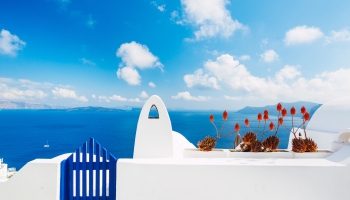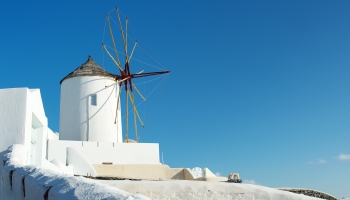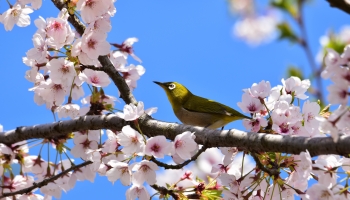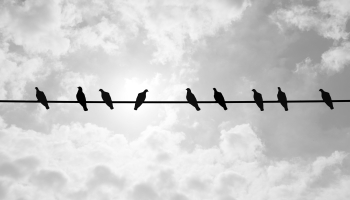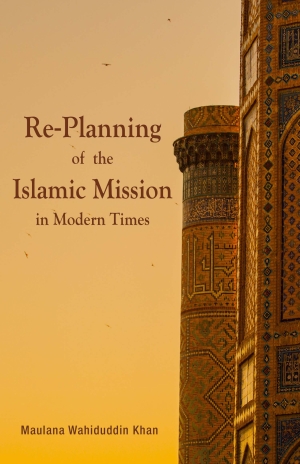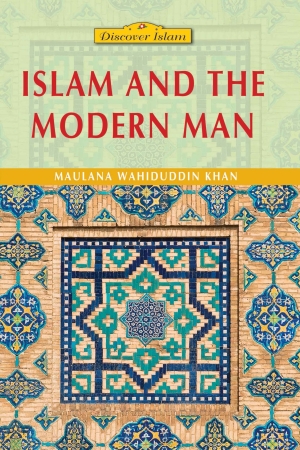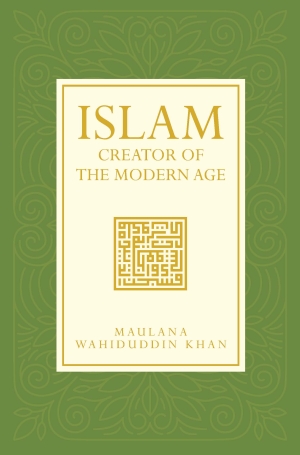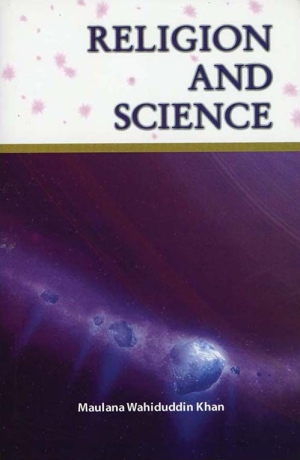Islam is the name of the eternal ideology that has been preserved forever in the Quran and Prophetic Sunnah. It provides guidance for humanity for all times to come. However, as the classic Islamic literature presented Islam in a traditional style, it did not address people’s minds in the modern age. The real issue was that Islam was being presented in a traditional style by scholars, whereas modern educated people thought along scientific lines. As this traditional style does not address the modern scientific mind, an intellectual gap is formed between Islam and modern minds. It is as if the traditional interpretation of Islam in the modern scientific age is like the veiling of the sun.
Maulana presented the basic teachings of Islam in a manner consistent with modern scientific methods. He concluded that the key religious teachings, such as the existence of God, the Hereafter, prophethood, the veracity of the Quran, and a God-oriented understanding of the purpose of life, are as valid, understandable, and intellectually acceptable as any of the theories propounded by science. A seeker of Truth can believe in them just as he believes in other realities of life. The picture of life and the universe that takes shape in our minds on accepting religious truths is a very meaningful and purposeful one. This establishes the truth of God-centred religion—Islam—in the same way as the material universe echoes in mathematical formulae.
Maulana presented Islam as it is enshrined in its original sources—the Quran, Sunnah, and Seerah in the modern idiom by engaging in ijtihad, re-applying Islamic injunctions through creative thinking to present times. Placing Islamic concepts in their proper perspective, he removed misconceptions about the religion and presented Islam as it is in the modern idiom by providing rational arguments for its support. This became like making Islam shine bright like the sun once again. Islam, as it is in the modern idiom, addresses modern minds, and helps people understand God-centred religion. The literature and talks of Maulana Wahiduddin Khan not only demonstrate the relevance of Islam in the modern age, especially in the 21st century but also present the modern age as the age of peace and opportunities. Maulana explained that through long planning the Creator had brought about a revolution in human history that brought the age of war to an end. In this way, it had become possible by using peaceful means to achieve one’s positive goals in a far better way than by using violent means.
Featured Articles
Featured Videos
Sub Themes
FAQs
In my opinion there is only one problem facing present-day Muslims – that is, their self-styled concept of jihad. All other issues of intolerance and extremism have branched out from their misconceptions of jihad. The most important point for Muslims today is to know the importance of peace and to know that jihad is not needed in today’s age. The command for jihad, in terms of qital (war), is suspended. If in present times, we can achieve everything we want by peaceful methods, then why engage in qital or fighting? This is the basic problem that needs to be addressed. Trying to establish Islamic Shariah by force or through coercion is also an offshoot of this wrong concept of jihad. Muslims must abandon the violent method and work peacefully for constructive goals.
Source: The Seeker’s Guide
The method of our scholars is to present a list of dos and don’ts, which the younger generation does not understand. Traditional scholars show Islam as a superstitious religion, instead of basing it on reason. Today’s youth have reason-based thinking. If the teachers of today use the language of earlier times, the minds of the addressee would not be addressed. This is a matter of communication gap. According to the Quran:
Speak to them in such terms as will address their minds. (Quran 4:63)
My experience is that if we talk to them in such a language that addresses them, then they do understand. Otherwise they will remain indifferent. So, it is an issue of the right kind of communication and not of dissatisfaction.
Source: The Seeker’s Guide
Man has been granted total intellectual freedom in Islam. Rather the truth is that it was Islam itself which brought into existence that revolution in human history which granted freedom of expression to all human beings. Prior to Islam in all periods of human history system of absolutism prevailed in the world. That is why man was denied of intellectual freedom. Intellectual freedom is no simple matter. The truth is that the secret of all human progress lies hidden in intellectual freedom.
The first benefit of this intellectual freedom is that man receives that highest good which is called fear of God in the Qur’an (5: 94). It consists of man’s recognition and realisation of God in full freedom and, of one’s own freewill, without any external pressure from God. So long as there is no atmosphere of total freedom, none can experience the indescribable pleasure of spiritual experience which is called fear of God in the Unseen. Hence it is impossible (without freedom) to grant anyone credit for the highest of human actions.
Freedom of expression is the thing which saves one from hypocrisy. Man is a thinking creature. His mind necessarily thinks and forms opinions. In such a situation if curbs are placed on freedom of expression, people’s thinking cannot be ceased, the only thing that will take place is that their thinking will not come to their lips and pens. Any institution, nation, state which places curbs on freedom of expression will be ultimately brimming with hypocrites. In such an atmosphere sincere people can never be produced.
In this way intellectual freedom is directly related to creativity. A society having intellectual freedom breeds creative people whereas a society which curbs intellectual freedom will necessarily stagnate and as a result the produce of creative mind and its growth and development will forever be stopped.
The proper stand in the matter of disagreement and criticism is that people shed off their unnecessary sensitivity in this matter, instead of attempting to put a stop to the act of criticism and disagreement itself. This is the demand of Islam as well as the demand of nature.
Democracy is a form of government in which people’s representatives manage the socio-political affairs of society. This system is a natural system. Islam is a religion of nature, and so Islam also accepts this form of rule. There are two different domains of human life: individual and social. In personal affairs, everyone is free to adopt any way of life, provided it is not harmful to the society. Islam allows personal freedom to every individual. There is no restriction at all in this regard, except that a person’s activities should create no problems for the society.
However, when it comes to the society, we should keep in mind that there are many people who form it. Here, everyone wants to live according to his or her own self. Islam gives us a very practical formula for this state of affairs. That is, in social matters the society has the right to decide how to manage social affairs. This formula is given in the Quran in these words: “Amruhum shura baynahum.” (42:38) This means: “[Those] who conduct their affairs by mutual consultation.” This is the formula of democracy according to Islam. It means that at an individual level everyone is free to act according to his or her own choice. But, as far as social affairs are concerned, they will be managed by way of social consultation. This is the true meaning of democracy, and Islam advocates this form of governance.
Democracy is not a religious concept. In fact, it is a social concept. Democracy is basically a secular formula, which means accepting the principle of non-interference towards religion. Democracy does not allow intervention in religious affairs. Religious affairs are strictly an individual’s own domain. In the system of democracy, religion is left wholly to the individual. Democracy covers only those affairs that are common to all members of society. This is democracy, and Islam accepts this form of democracy.
Some Muslims wrongly claim that Islam only allows limited democracy. That is, Islamic democracy does not allow freedom of expression, especially in religious affairs. For example, if someone wants to issue a negative remark about the Prophet of Islam, he will not be allowed to do so. But if he insists, he would be killed. However, this kind of thinking has nothing to do with Islam.
Islam allows complete freedom of expression. The only restriction being that freedom should not be used to cause physical harm to anyone in society. If someone claims that his sentiments were hurt, then that is not the concern of democracy. If someone feels hurt, he should manage his sentiments on his own, rather than demanding others to not hurt him.
Present democracy has adopted the form of holding elections. Islam also believes in this method. The only condition is that elections must be free and fair. If an election is free and fair, then Islam would accept it without any conditions.
In present times, some Muslim countries claim that they are republics which have adopted the democratic system of politics. But, the fact is that these countries have adopted democracy only in the partial sense. This kind of democracy is not acceptable in the present universal culture.
One principle of Islam is that in purely religious matters Muslims must adopt the teachings of the Quran and Sunnah. But in political matters, they should adopt the universally accepted norms. For example, in the matter of prisoners of war, the principle of repatriation will be followed. Any other method in this regard will not be acceptable according to Islam.
It is a fact that in the later history of Islam, Muslims adopted the dynastic pattern of rule. But, this was a deviation from Islam, and not in accordance with the true teachings of Islam.
















